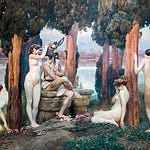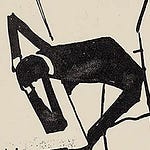Welcome back to The Invisible College, my series of literature courses for paid subscribers. The 2024 syllabus can be found here. This episode—over two hours for paid subscribers, with a 15-minute preview for free subscribers—is the second in a three-week sequence on Herman Melville’s Moby-Dick. First we discuss the unity and disunity of Moby-Dick—whether or not the novel is, as Melville said, a “botch”—with remarks on its relation to 20th-century critical trends like New Criticism and deconstruction. I offer my own view as a novelist about the question of whether or not works of literature should seek coherence or contradiction, unity or aporia. Then we consider the strange identity of the novel’s three main personae—Ishmael, Ahab, and the titular whale itself—and the novel’s vein of Orientalism centered on the figure of Fedallah. Next we explore the mood of pessimism and misanthropy that marks the novel’s middle third, abrading the revolutionary cosmopolitan optimism of the first third, and investigate the themes of fate, free will, and chance. For the rest of the episode, I examine Ishmael’s cetology chapters and their metafictional relation to realism and allegory, their theological implications, and their anti-philosophical bias. I further detect unexpected elements of the sentimental and the feminine—not to mention the ecological—in this otherwise radical, masculinist, and gnostic epic. Finally, I note the novel’s ambitious civilizational syncretism, uniting Greek, Hebrew, Hindu, and Christian myth. Please like, share, comment, and enjoy!—and please offer a paid subscription so you don’t miss the rest of the American literature sequence, including the finale of Moby-Dick, not to mention the archive of episodes on modern British literature from Blake to Beckett and our previous sequences on the works of Joyce, including Ulysses, and on George Eliot’s Middlemarch. The slideshow corresponding to the lecture can be downloaded below the paywall:
Listen to this episode with a 7-day free trial
Subscribe to Grand Hotel Abyss to listen to this post and get 7 days of free access to the full post archives.












